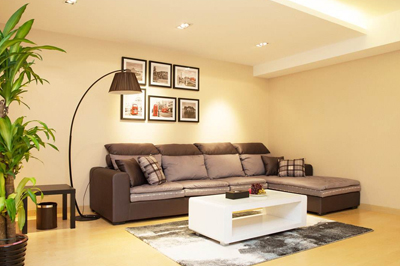The Chinese real estate market is changing, and like everything else in China these last years, it is changing very fast.
The real estate prices are still growing, but since 2010, they are are growing dramatically slower compared with the frenzy of the past decades. For example, in Beijing between 2006 and 2009, a price of an apartment in Beijing has more than doubled. In such a market, landlords were not really interested in the apartment itself, it was above all speculation and the whole deal revolved around the selling with a high margin as fast as possible and buy another apartment and go on with the scheme.
The Chinese government was terrified about the idea of a growing housing bubble plus concerned about the fact that many young Chinese households were unable to buy an apartment to settle themselves and this could lead to social unrest, and frustration.
The prices are now increasing at a slower pace, and the consequences can be seen. Landlords want to sell their apartments with the best possible price, and 200 % or 300 % profit margins are not possible anymore (nevertheless, they try to do sell…). New ways have to be found to add value to the real estate good, in a way the real estate market is becoming more mature.
The best way that has been found so far for the landlords to renovate the apartments, paint them again, change tiles, renovate, enhance the kitchen and bathroom, make the apartments look fresh and clean, with better quality interior stuff. This is really something really new in China, landlords were more used to totally disregard this kind of issues.
This is leading to a boom in decoration and interior design, a market that was until now limited to very high end segments of the real estate markets.
This has another consequence, until now only the best apartments located in good quality compounds were looked after by the landlords and the tenants of the Chinese rising middle class. This was a very compartmented market, with people buying and selling in specific residences, with standards that were considered as good enough to deserve investor’s attention.
Because of apartments that have become non-affordable, this new Chinese middle class was deprived of the possibility to find an apartment, again something frustrating. The consequence is that a new market is developing itself, outside of the prestigious « Gong Yu » residences, just next to it, in the more common and old residential complex that were being reserved to the most modest city dwellers.
Now, old apartments in non-prestigious locations are undergoing renovation, this means a much extended real estate market, more complex and more diverse, much more difficult to understand. You have no way to know if an apartment has a good standard just by looking by the address, you have to investigate in these new places where beautifully renovated apartments are reachable.

Before this new trend, renovation was very limited in Beijing, it has a specific niche market with Hutongs and their courtyards. The Hutongs, the little traditional alleys of Beijing are places where you can wander for hours like in a labyrinth, with southern doors leading to courtyards. For a long time, these places have been categorized as low grade, with popular people wishing to leave them as soon as possible, as a symbol of social success, and the Beijing authorities destroying them to modernize the city. This has changed as well, there are many beautifully renovated courtyards and some of these are now among the most expensive type of accommodation in Beijing.
Markets in Beijing are now flourishing with this new renovation market, you can at last find skilled workers ready to renovate the place you are living in Beijing, and find beautiful materials.
This is an interesting trend, adding complexity to a real estate market more and more difficult to apprehend, with its empty apartments, a continuous flow of newly built residences, migrants still coming to China’s large cities, talks about a bubble about to pop and new location to live in. This is a symbol of the new Chinese economy in the 2010s, and this is going to be something fascinating to watch.
For more information about Beijing apartments for rent, please follow our website.
